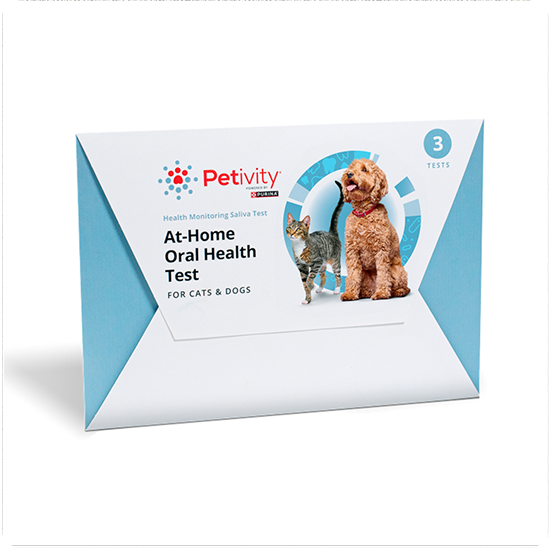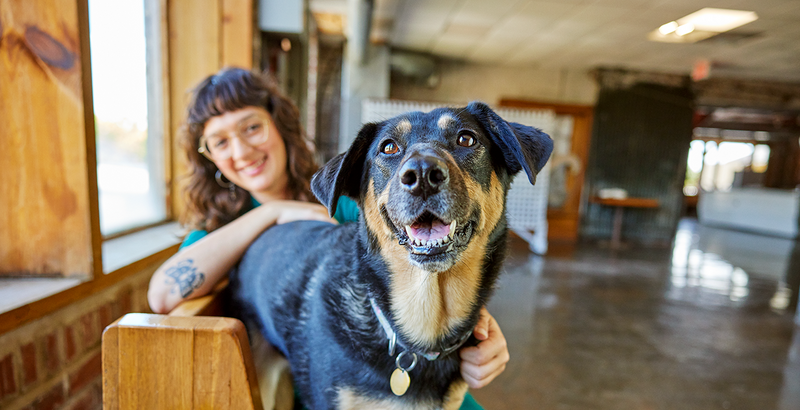As devoted dog owners, we cherish the bond we share with our furry companions. Their wagging tails and joyful barks bring immense joy to our lives. Naturally, we want to ensure their health and happiness and one common concern that often arises is bad breath. It’s not just an unpleasant odor; it can lead to the pressing question: “Does bad breath mean my dog is sick?”
In this article, we’ll explore the causes of bad breath in dogs, the actions you can take to maintain your dog’s oral health and ultimately answer that important question.
Understanding Bad Breath in Dogs
Bad dog breath, medically referred to as halitosis, can be more than just a nuisance. While occasional bad breath may not be alarming, if you consistently notice your dog’s breath smells foul, persistent foul-smelling breath can signal underlying health issues that warrant attention. As we delve into the various factors contributing to your dog’s bad breath, we’ll guide you in assessing its severity and recognizing when it may be time to consult your veterinarian.
What’s Causing Your Dog’s Bad Breath?
Understanding the root causes of your dog’s bad breath is essential for maintaining their health. From dental issues to dietary influences, a variety of factors can contribute to this common concern. Let’s explore the key contributors to bad breath in dogs.
1. Gingivitis
Gingivitis is a prevalent dental condition affecting both dogs and humans. It occurs when plaque accumulates on the teeth, leading to inflammation of the gums. Symptoms of gingivitis in your dog may include redness, swelling, and occasional bleeding of the gums; if severe, you might notice their breath smells like blood. Alarmingly, over 80% of dogs aged three years and older are likely to experience gingivitis, with small breeds such as Chihuahuas being particularly susceptible at an earlier age.
Fortunately, gingivitis is often reversible through proper oral hygiene practices, such as brushing your dog’s teeth and providing dental chews. If left untreated, however, it can progress to more severe dental issues, including periodontal disease.
2. Periodontal Disease
Periodontal disease encompasses a range of dental problems that affects the supporting structures of your dog’s teeth, including the gums and jawbone. It arises when bacteria accumulate in hidden pockets between the teeth and gums, leading to plaque buildup. This condition can cause significant damage to surrounding tissues and, in advanced cases, may result in bone loss and tooth extraction.
Periodontal disease can also have systemic effects, potentially impacting your dog’s heart, liver, and kidney function. Certain breeds, dental alignment, and habits such as chewing hard objects can increase a dog’s risk for this condition. To mitigate these risks, it’s vital to maintain your dog’s dental hygiene through regular brushing and dental chews.
If you want to keep an eye on your dog’s dental health at home, try the Petivity At-Home Oral Health Test. This easy-to-use saliva test is a quick and convenient way for you to monitor your dog’s oral health by routinely testing between vet visits. For dogs and cats of all ages, sizes, and breeds, this test is the only 10-second solution that measures your dog’s thiol levels. Thiols are chemical compounds that contain sulfur and they’re characterized by a strong, often unpleasant smell that can lead to bad breath.
If you suspect your dog is experiencing dental issues or has persistent bad breath, a visit to your vet is recommended.
3. Dietary Factors
What your dog eats can also play a significant role in their mouth odor. Certain foods, particularly those with strong odors or high protein content, can contribute to unpleasant breath. For instance, dogs that consume a diet rich in fish or specific meats may experience more pronounced bad breath.
4. Foreign Objects
Sometimes, dogs may chew on or ingest foreign objects that can become lodged in their mouths, leading to irritation and bad breath. It’s important to monitor what your dog plays with and consumes to prevent such issues.
5. Systemic Health Issues
Now, let’s return to the critical question: “Is your dog’s bad breath a sign of illness?” The short answer is yes; it can be. Several underlying health problems may manifest as bad breath, including:
Diabetes: This condition may lead to an accumulation of ketones, resulting in a breath that has a sweet, fruity scent or resembles nail polish remover.
Liver Disease: Affected dogs may exhibit breath with a musty odor or a scent reminiscent of a decomposing animal. This occurs when the liver cannot effectively filter toxins, leading to the release of foul-smelling sulfur compounds into the lungs.
Kidney Disease: Elevated levels of urea in the body can result in dog breath that smells like urine or fish. If your dog has fish breath or their breath smells like urine, elevated levels of urea in the body could be the cause. The kidneys play a crucial role in detoxifying the body by filtering out harmful substances.
Oral Tumors: While rare, oral tumors can cause bad breath due to inflammation and infection.
Regular veterinary checkups can aid in the early detection of such issues.


The Gut-Breath Connection
In recent years, the connection between a dog’s gut health and bad breath has garnered attention from both pet owners and veterinarians, especially concerning a dog’s bad breath from stomach or intestinal issues. An imbalanced gut microbiome can lead to various health issues, including halitosis. When harmful bacteria overpopulate the small intestine, they can produce excessive amounts of smelly gas, which may be absorbed into the bloodstream and exhaled, resulting in foul-smelling breath.
Conditions such as small intestinal bacterial overgrowth highlight how gut imbalances can contribute to oral health problems. In addition to bad breath, these imbalances may lead to digestive issues, lethargy, and discomfort in dogs. Therefore, it’s essential to recognize that your dog’s breath may be a reflection of their overall gut health.
To promote a balanced microbiome and mitigate bad breath, consider implementing dietary changes that include high-quality dog food rich in fiber, probiotics, and prebiotics. Regular veterinary checkups are also crucial for identifying any underlying health issues affecting the gut.
Recognizing the Signs: What to Look for in Your Dog’s Mouth and Gut
While some underlying issues may not be immediately visible, there are several signs you can observe to help determine the cause of your dog’s bad breath:
- Check for any buildup on the teeth: Plaque and tartar buildup can indicate dental issues.
- Watch for mouth pain: If your dog is reluctant to eat or shows signs of discomfort, it may signal a dental problem.
- Monitor for any sinus problems: Nasal drainage or sneezing can indicate underlying health concerns.
- Examine the back and roof of their mouth: Look for discoloration, lesions, or foreign objects.
- Check for signs of gum disease: Red or swollen gums are a cause for concern.
- Observe changes in appetite or eating habits: A sudden change may indicate an oral health issue.
- Note any unusual drooling or saliva production: Excessive drooling can signal dental problems.
- Be aware of any changes in behavior: Reluctance to play or interact may indicate discomfort.
- Look for discoloration or lesions in the mouth or on the tongue: These can be signs of oral health issues.
How to Fix Your Dog’s Bad Breath
Treating bad breath in dogs largely depends on its underlying cause. If the odor is due to bacterial buildup in the mouth, a professional teeth cleaning may be necessary. In cases where dogs have consumed foul-smelling items, addressing their diet may help alleviate the issue.
For certain causes of bad breath, veterinary intervention is essential. Conditions such as diabetes, dental disease, gastrointestinal problems, and other health issues must be addressed before any improvement in breath odor can be expected. Given that treatment plans may vary from one dog to another, it’s advisable to begin your dog’s care by consulting with your veterinarian.
Consider implementing the following at-home solutions to effectively prevent bad breath in your dog:
Practical Home Dental Care for Dogs
Periodontal disease is the leading cause of bad breath in dogs, making dental and oral health care essential. To effectively prevent bad breath, veterinarians recommend regularly brushing your dog’s teeth with toothpaste specifically designed for dogs. Daily brushing helps remove plaque buildup around the gum line, significantly reducing the risk of dental disease. Additionally, providing your dog with chew toys can enhance oral health by dislodging plaque and promoting saliva production, which aids in washing away harmful bacteria. Consult your veterinarian for recommendations on the best dental chews and treats tailored for your pet.
It's also important to make sure a thorough mouth exam takes place during your annual veterinary exam. If recommended, schedule a dental cleaning to address gum disease, which often occurs beneath the gums.
Dog Gut Microbiome Support
In addition to maintaining good dental hygiene, supporting your dog’s gut microbiome can be an effective way to address and prevent the underlying causes of bad breath. One way to keep tabs on your dog’s gut microbiome is to test their gut health. With a Petivity Microbiome Analysis Kit, you’ll uncover valuable health information about your dog’s gut and receive tailored food and supplement recommendations to help support their specific needs. Testing your dog at home is easy — simply swab their stool, send the sample to Purina labs, and receive a custom report within a few weeks.
Smarter Dietary Options
A balanced diet plays a crucial role in maintaining a dog’s oral health. Nutrient balanced foods may help strengthen teeth and gums, while certain textures—like dry kibble—can aid in reducing plaque and tartar buildup through natural abrasion. Diets lacking essential vitamins and minerals may weaken a dog’s immune system, increasing susceptibility to gum disease and infections. Additionally, some specially formulated dental treats are designed to clean teeth and freshen breath, supporting overall oral hygiene. Ensuring your dog receives proper nutrition not only can promote a healthy mouth but also contributes to their overall well-being and longevity.
When to Visit Your Vet
If persistent bad breath continues to be an issue, it’s advisable to make an appointment with your veterinarian to determine the underlying cause. Should your vet conclude that it’s simply a natural condition, you might consider incorporating fresh herbs such as parsley and mint into your dog’s meals to help improve their breath.
Additionally, explore using breath-freshening water additives in their drinking bowl; however, ensure that the chosen product doesn’t cause your dog to drink less or increase their need to use the bathroom, as these can also contribute to bad breath. Before making any additions or changes to your dog’s diet or lifestyle, always consult with your veterinarian.

Conclusion
In conclusion, while occasional bad breath in dogs may not be a cause for concern, persistent or foul-smelling breath can indeed be a sign of underlying health issues. From dental problems like gingivitis and periodontal disease to systemic health conditions such as diabetes, liver disease, and kidney disease, bad breath in dogs can serve as a warning signal that requires attention.
Regular dental care, a balanced diet, and routine veterinary checkups can go a long way in preventing bad breath. If you ever have concerns about your dog’s breath or notice any sudden changes, don’t hesitate to seek veterinary advice. After all, your dog’s health and happiness are worth every effort.
